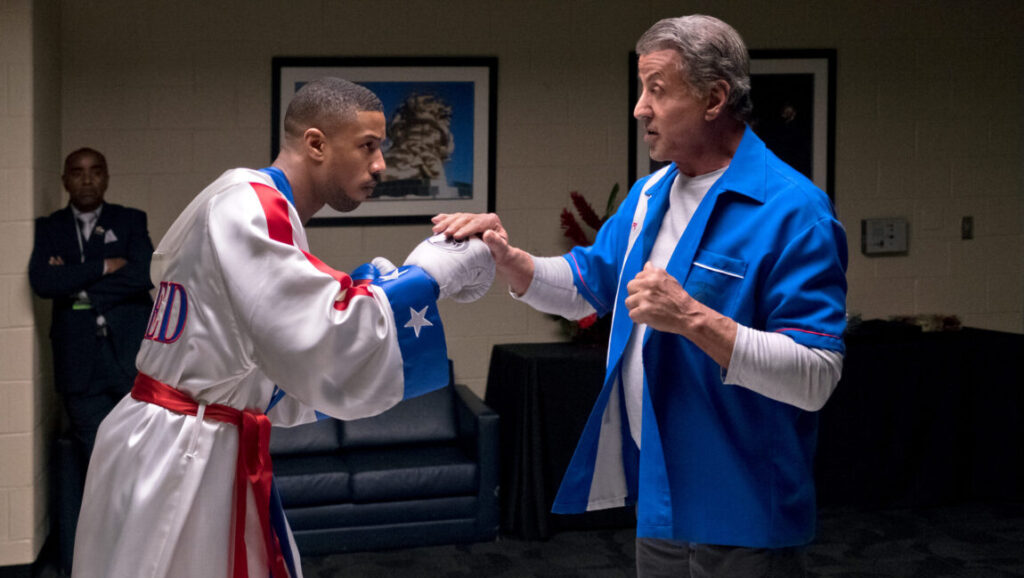Whereas 2015’s Creed transcends its station as essentially the seventh Rocky due in large part to director Ryan Coogler’s reliance on his actors’ emotional intelligence, and his ability to balance character nuance and broad narrative strokes, Creed II resembles not much more than a generic Rocky sequel. Coogler’s out, and new director Steven Caple Jr. abandons the complex aspirational working class perspective that defined the first Creed (and the original Rocky) in favor of mounting yet another bland sports story about male pride redeemed and women standing by and worrying. Michael B. Jordan’s Adonis Creed wins the heavyweight championship and subsequently proposes to his musician girlfriend, Bianca (Tessa Thompson), who then gets pregnant. Meanwhile, a shady promoter has drawn out quite a challenger for the title, Viktor Drago (Florian Munteanu), son of Ivan (Dolph Lundgren), the Soviet boxer who killed Adonis’s father, Apollo, way back in 1985’s Rocky IV. This suddenly throws Adonis into total masculine crisis, as he ignores the needs of his new family (Stallone’s Rocky included) to take on a fight he can’t win, out of some misplaced idea of revenge.
Creed II is unable to pull off the kind of judicious fissures of its characters’ emotional and political capital that could result in a truly inspirational sports story.
The first third of Creed II, up until Viktor delivers Adonis a punishing defeat from which he’ll have to humbly recover, is almost insufferable, a complete betrayal of the two leads as we came to know them in the first film, with Adonis made to be an arrogant celebrity and Bianca, once so powerful and autonomous, relegated to the role of fussy wife. Things recover, at least narratively, in the back half of the film, even despite a litany of standard sports story beats. Caple is at least competent in staging boxing sequences (though he leans way too hard on the speed ramping effects), and he knows enough to get out of the way of capable performers like Stallone, Jordan, and Thompson. Sadly, though, the plight of Drago and Drago Jr gets precious little screen-time here, even as the father and sons’ emotional journey — tinged as it is with shades of abuse, resentment, and class struggle — is far more succinct and potent than is Adonis’s narrative. Lundgren is particularly good as a former unstoppable force beaten down by time and failed by any support system. You’re almost rooting for the alleged bad guys here — and that could work, theoretically, but Creed II, unlike so many of the other eight films in this franchise, is unable to pull off the kind of judicious fissures of its characters’ emotional and political capital that could result in a truly inspirational sports story. And the last thing that one of these movies should be is merely an adequate entertainment.


Comments are closed.